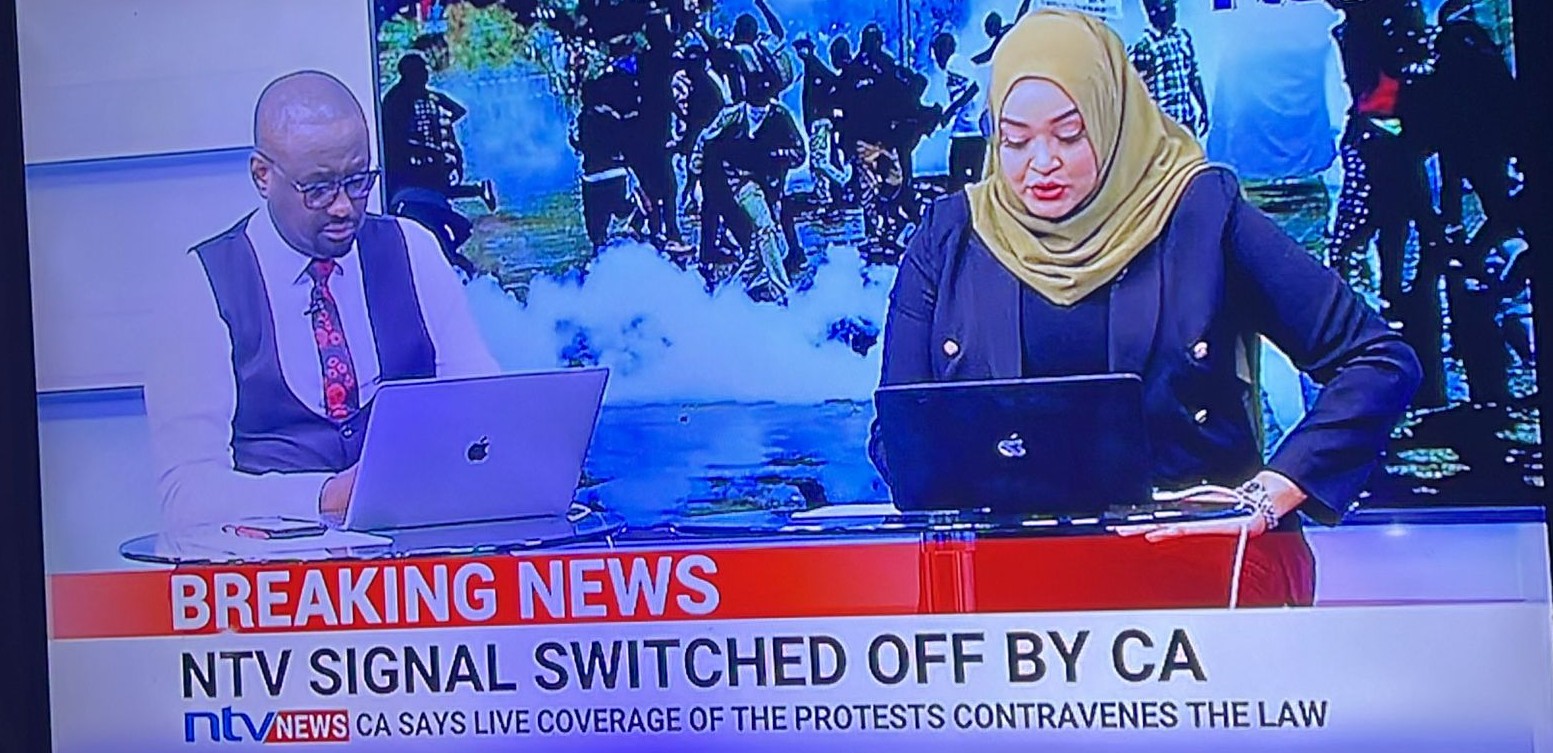KHRC, Katiba Institute sue Communications Authority of Kenya over ban on live protest coverage

The organisations said they had filed an urgent judicial review application at the High Court in Nairobi to challenge what they termed an unconstitutional order issued by the CA.
Two civil rights organisations, the Kenya Human Rights Commission (KHRC) and Katiba Institute, have filed a lawsuit against the Communications Authority of Kenya (CA), accusing it of unlawfully banning live media coverage of the ongoing 'Justice for Our Mashujaa' demonstrations.
The organisations said they had filed an urgent judicial review application at the High Court in Nairobi to challenge what they termed an unconstitutional order issued by the CA, which instructed all television and radio stations to stop airing live footage of the protests.
More To Read
- Civil society raises alarm over 2027 election readiness after chaotic by‑elections
- High Court nullifies Communications Authority's broadcast ban on June 25 demos
- IG Douglas Kanja urges court not to issue orders over political activity claims
- Communications Authority dismisses claims of mandatory biometric data for SIM registration
- Communications Authority of Kenya takes LSK to court over controversial cybercrime law
- Kenya’s crackdown on activists spotlighted at AU rights summit
“This directive was swiftly followed by police raids on major broadcast transmission sites of Citizen TV, NTV, and KTN, leading to the unlawful shutdown of their free-to-air services,” the lobby groups said in a statement on Wednesday.
Threatened broadcasters
According to the two petitioners, the CA also threatened broadcasters with regulatory sanctions, including license revocation, should they defy the directive.
Katiba Institute and KHRC argue that the Communications Authority has no legal mandate to control broadcast content, and that its memo infringes on key constitutional freedoms.
“The directive violates the constitutional freedoms of expression, media, and information under Articles 33, 34, and 35 of the Constitution,” the statement said.
They further noted that it breaches the right to fair administrative action and due process as provided for under Article 47 and the Fair Administrative Action Act.
Previous court rulings
The rights groups also faulted the directive for undermining previous court rulings, including Republic v Chiloba (2023) and Kenya Union of Journalists v CAK (2024), which, they said, had already declared similar actions by the CA illegal.
In both cases, courts ruled that CAK lacks legal authority to regulate broadcast content, a function constitutionally assigned to the Media Council of Kenya.
The petitioners now want the High Court to urgently intervene by issuing conservatory orders to suspend the contested memo, compel the restoration of disrupted broadcasts, and bar any attempts to enforce the directive.
“Media freedom and the right to protest are pillars of Kenya’s democracy. Gagging the press violates not just media rights but also the public’s right to know and hold power accountable,” the statement added.
They have called on the judiciary to act swiftly to preserve the Constitution and safeguard the public interest.
Several media stations, including NTV, KTN, K24 and Citizen TV, confirmed that their signals were either disrupted or their transmission infrastructure was interfered with by CAK officials.
Top Stories Today













































